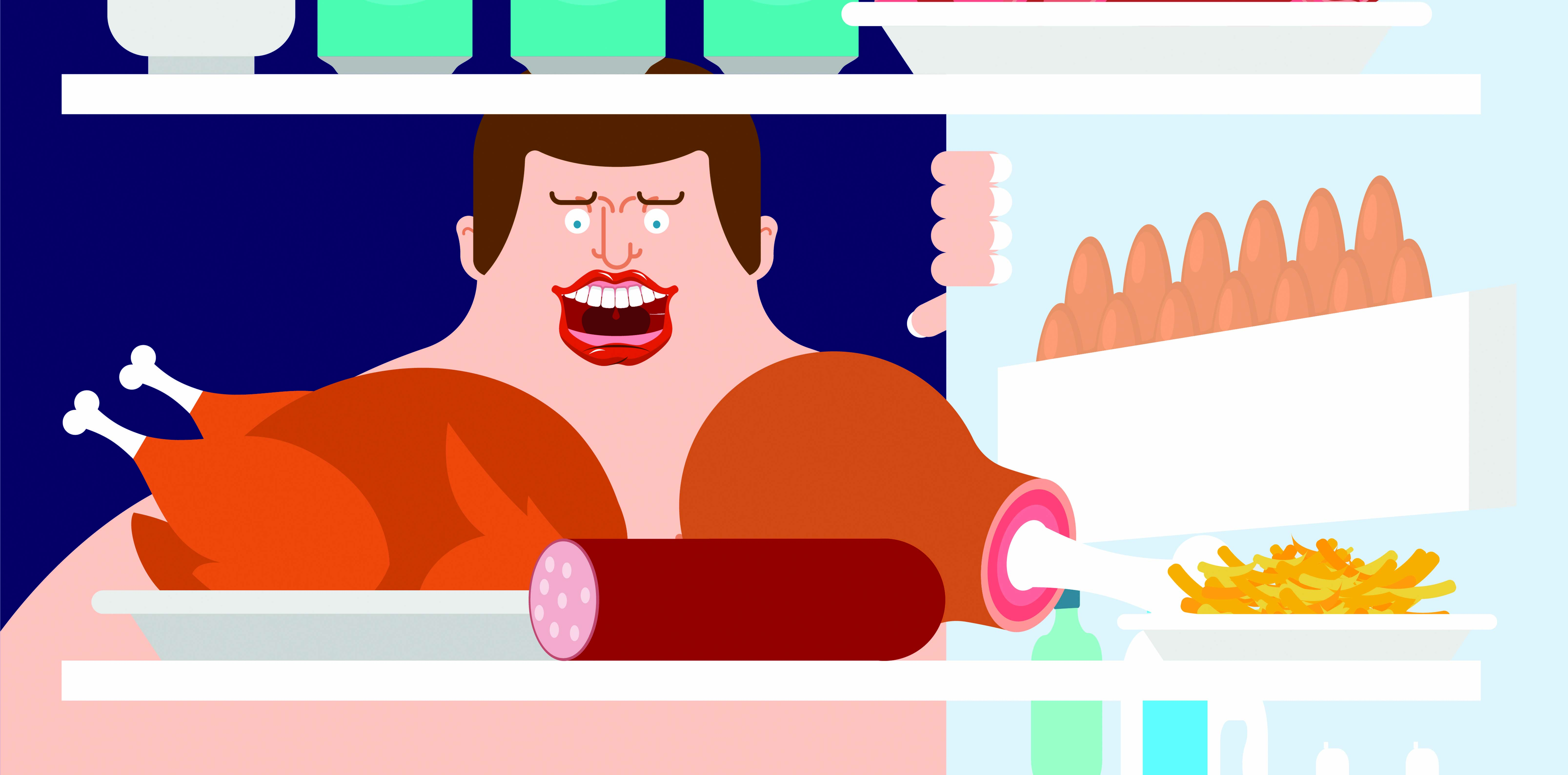The combination therapy of bupropion and naltrexone has been used to treat obesity in the US for the past five years
A combination drug that dulls food cravings has been approved by the TGA, but the high price may be a barrier for some patients.
Contrave was developed in Australia in the early 2000s by Professor Michael Cowley, a scientist at Monash University.
The combination therapy of bupropion and naltrexone, which wake up the brain’s appetite suppression centre, has been used to treat obesity in the US for the past five years.
Contrave is indicated as an adjunct to dietary restriction and exercise for adults with obesity or adults who are overweight and have one or more weight-related co-morbidities, such as type 2 diabetes, dyslipidaemia, or controlled hypertension.
“I like to call the drugs enablers because the drugs work by suppressing cravings,” Professor John Dixon, the head of clinical obesity research at the Baker Heart and Diabetes Institute, said.
“Patients say, ‘I’m not as focused on food. A smaller meal lasts longer. I didn’t have to look for a snack.’ When you put them on a diet, they can stick to it. It’s not as difficult.”
Patients taking Contrave lose on average 5% of their weight in addition to the placebo effect. Around 30% of patients who stay on the drug will lose 10% of their body weight.
“For those that don’t, we’ve got the stopping rule, just like liraglutide,” said Professor Dixon. “So, at 16 weeks, we check and if they have not lost 5% of body weight, then the drug will be stopped.”
Most of the reductions in complications such as heart disease, hypertension, and cancer risks and arthritis were seen in the 5-10% weight-loss range, Professor Dixon said.
Contrave costs $230 to $250 per month and, like other weight loss drugs such as phentermine, it is not PBS-listed for obesity.
Patients usually need to take these medications for life to sustain the weight loss.
The cheapest weight loss drug in Australia is topiramate, which costs around $8 per month. Topiramate is an anticonvulsant used to treat migraines, but it can be used off-label for obesity.
Bariatric surgery is still “head and shoulders above drugs” in terms of its impact on weight, with patients losing around 25% of their body weight on average, Professor Dixon said. But surgery could sometimes fail, and it was good to have another option, he said. Also, surgery left private patients out of pocket by between $10,000 and $25,000.
Contrave is contraindicated for people with uncontrolled hypertension, bipolar disorder, eating disorders and during pregnancy, as well as for other conditions.
Patients with controlled hypertension, seizures, liver disease, a history of mania and patients aged over 65 can be prescribed the drug, as long as these conditions are monitored closely.
Around 30% of patients on Contrave experienced nausea in one phase 3 trial, but patients didn’t seem to mind the side effect too much as the same proportion of patients completed the trial as in the placebo group.
Professor Cowley, who is now the head of the department of physiology at the Monash Biomedicine Discovery Institute, spent years searching through old drugs with established safety records to find a combination of pharmaceuticals that acted on appetite circuits in the brain.
The main control centre for hunger in the brain is the hypothalamus, which monitors the levels of a hormonal signal of fat in the blood. When this hormone level is too high, the hypothalamus down-regulates food appetite to maintain energy homeostasis.
“The brain is saying, ‘Your stomach is full and you’re carrying lots of fat. You don’t need to eat now. You should feel full’, and so it’s turning off appetite,” Professor Cowley said.
However, this “fat thermometer” appears to be broken in some people with obesity, so their appetite isn’t suppressed properly after a meal.
Professor Cowley found two drugs, bupropion and naltrexone, that woke up the hypothalamus cells that respond to fat, while also dulling neural pathways in the ventral tegmental area and prefrontal cortex of the brain that reward eating behaviour.
Bupropion is an antidepressant and smoking cessation drug first approved by the FDA in 1985 that enhances the neurotransmission of dopamine.
Naltrexone, a drug that stops the euphoric effects of opioids, has been used for two decades as a treatment for heroin addiction.


